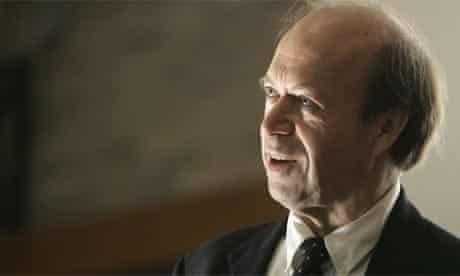Who’s The Denier Now?asks National Review's Oren Cass.
Related: Unexpected! The Puzzling Reason Why So Many PeopleThe epithet “climate denier,” intended to invoke Holocaust denial, has always been tasteless and inapt. Climate change is not like the Holocaust, nor is questioning the
accuracy and predictive power of a scientific model like questioning the historical fact of a genocide that murdered 6 million Jews. But climate activists delighted in defining their opposition this way, with help from prominent figures such as Barack Obama, who in 2014 used Twitter to condemn “climate change deniers” and promote a website, run by Organizing for Action (formerly Obama for America), that featured large black-and-white pictures of then–House speaker John Boehner and Senator Marco Rubio atop a green “Climate Change Deniers” banner. “On climate,” asked the site’s headline, “whose side are you on?”
For a while, this seemed to work. Framing the climate debate as one between noble keepers of the scientific flame and people akin to Nazis gave the former group license to say almost anything. To the casual observer, even the most egregious exaggeration about climate science could seem reasonable compared with its outright rejection. Thus, Obama’s assertion in his 2015 State of the Union address that “no challenge — no challenge — poses a greater threat to future generations than climate change” became widely accepted. When Senator Bernie Sanders warned during a presidential debate that “the scientific community is telling us that if we do not address the global crisis of climate change . . . the planet that we’re going to be leaving our kids and our grandchildren may well not be habitable,” he was not laughed off the stage. …
Remain Skeptical of Global Warming and Climate Change
While Jonah Goldberg points out that liberals
claim that their opinions are facts and anyone who disagrees isn’t merely voicing a bad opinion but it somehow living in alternative reality or “denying” science,a post entitled The Holocaust, Climate Science, and Proof, over at The Science of Doom (Evaluating and Explaining Climate Science), concludes with these words:
I can’t find words to describe how I feel about the apologists for the Nazi regime, and those who deny that the holocaust took place. The evidence for the genocide is overwhelming and everyone can understand it.
On the other hand, those who ascribe the word ‘denier’ to people not in agreement with consensus climate science are trivializing the suffering and deaths of millions of people. Everyone knows what this word means. It means people who are apologists for those evil jackbooted thugs who carried the swastika and cheered as they sent six million people to their execution.
By comparison, understanding climate means understanding maths, physics and statistics. This is hard, very hard. It’s time consuming, requires some training (although people can be self-taught), actually requires academic access to be able to follow the thread of an argument through papers over a few decades – and lots and lots of dedication.
The worst you could say is people who don’t accept ‘consensus climate science’ are likely finding basic – or advanced – thermodynamics, fluid mechanics, heat transfer and statistics a little difficult and might have misunderstood, or missed, a step somewhere.
The best you could say is with such a complex subject straddling so many different disciplines, they might be entitled to have a point.
If you have no soul and no empathy for the suffering of millions under the Third Reich, keep calling people who don’t accept consensus climate science ‘deniers’.
Otherwise, just stop.













